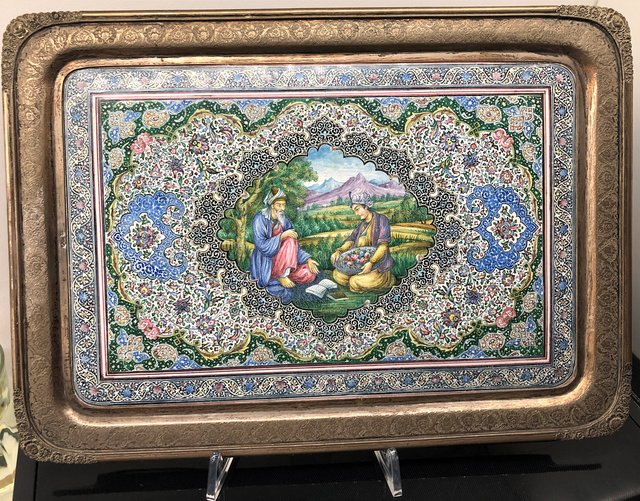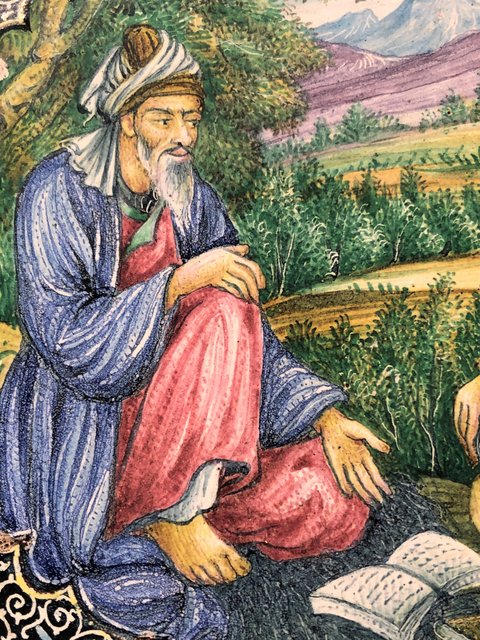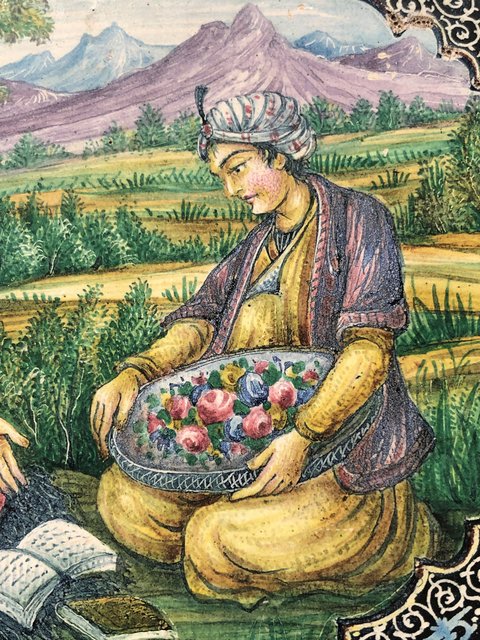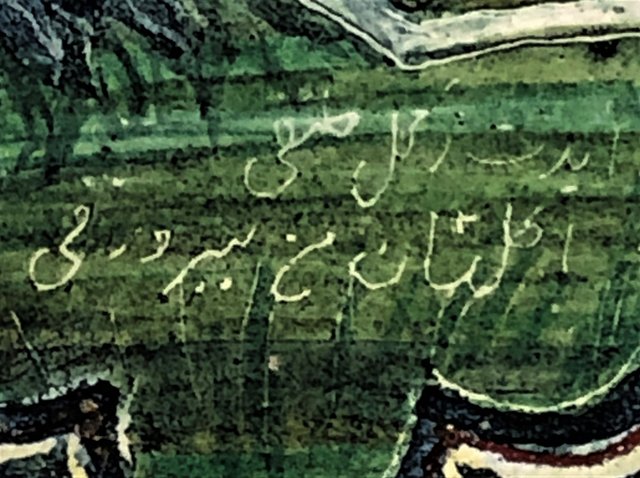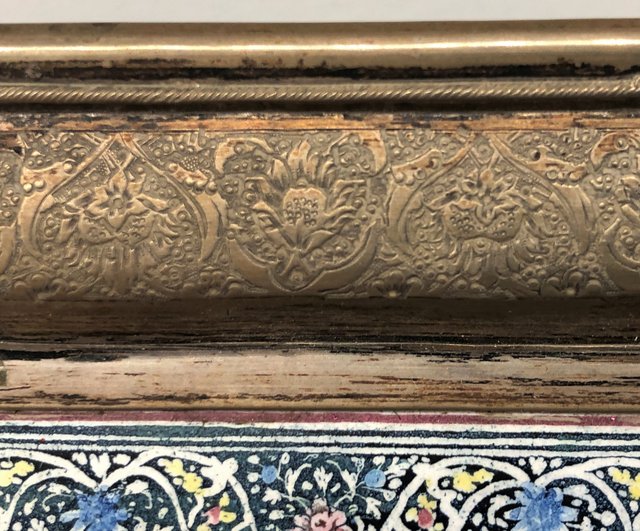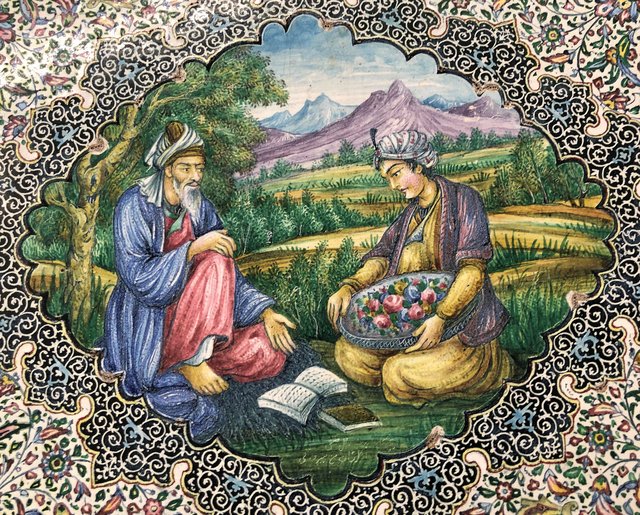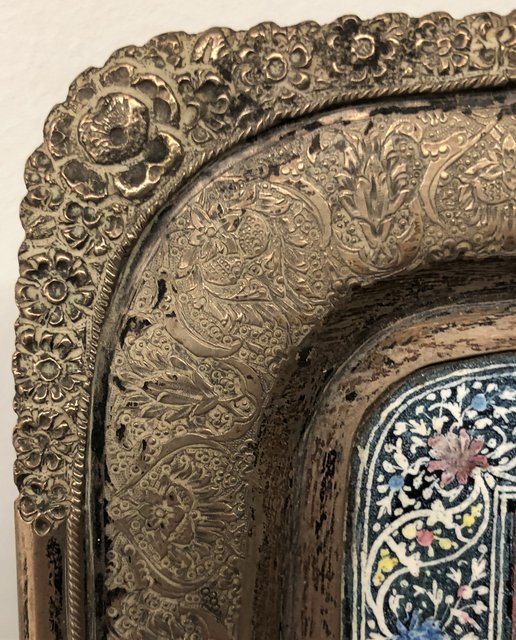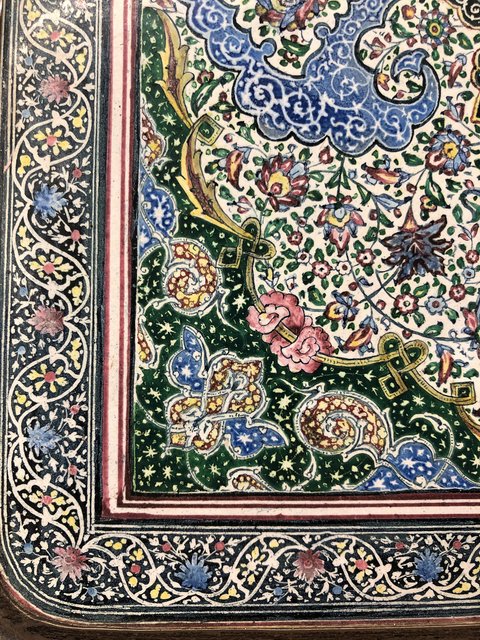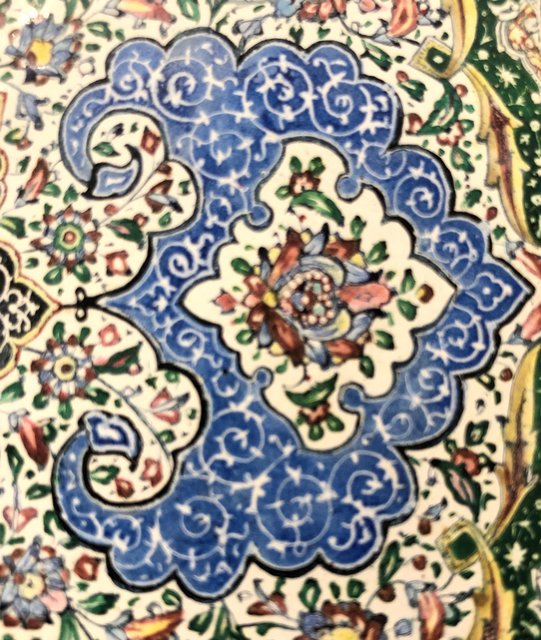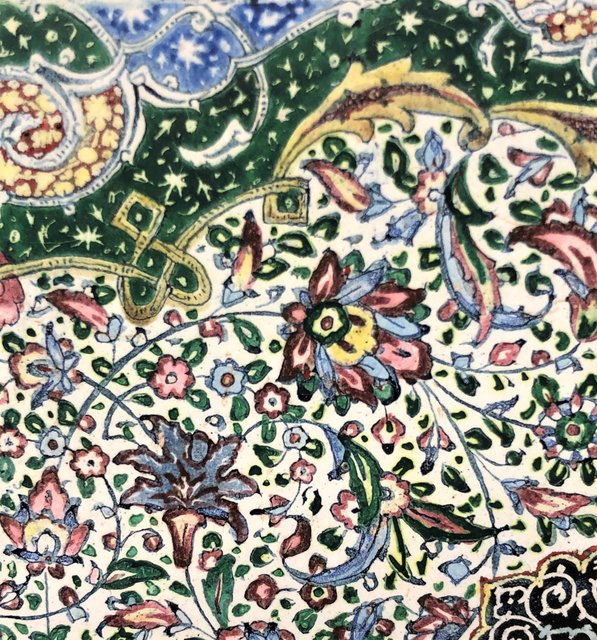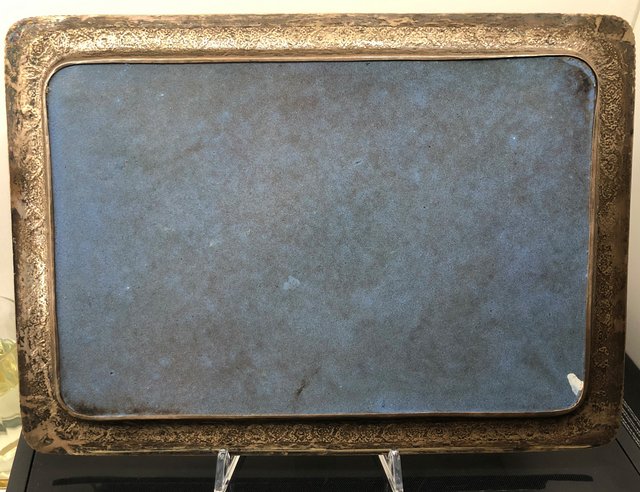The front is enamelled resembling a Persian rug with a painting in the centre of what appears to be a teacher and student. The centre painting is lovely and is 12 cms by 10 cms. Not a lot of space to work with but they have done an amazing job considering. There is some writing at the bottom which I am assuming is Farsi and what appears to be initials - perhaps the artist? I would welcome a translation.
The reverse of the tray is also enamelled in blue. From the research I have carried out this may have had a set of enamelled cups to accompany the tray and perhaps a tea or coffee pot. I have seen many examples in etched silver but only one with enamelling which in my opinion was quite plain and had no additional centre painting.
As always I appreciate this forum. I will now spend a leisurely couple of hours giving it a light clean before putting it back.
